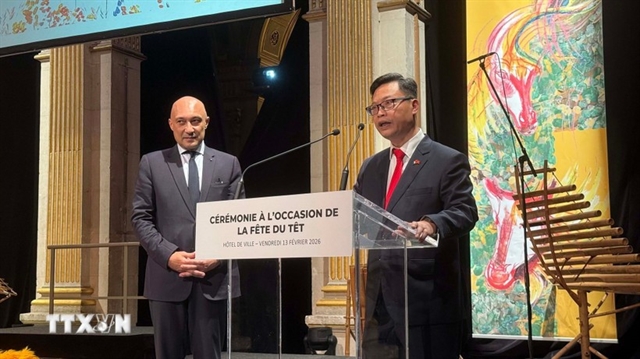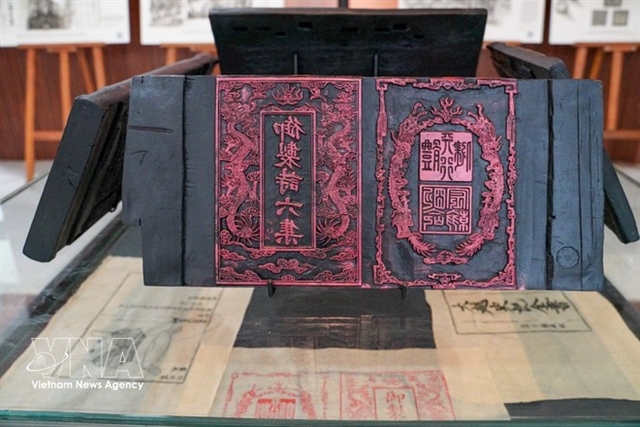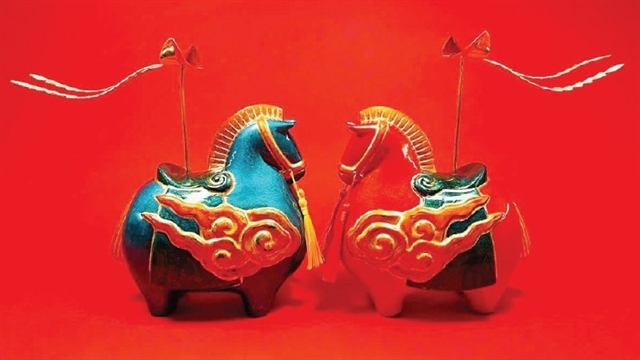 Inner Sanctum
Inner Sanctum

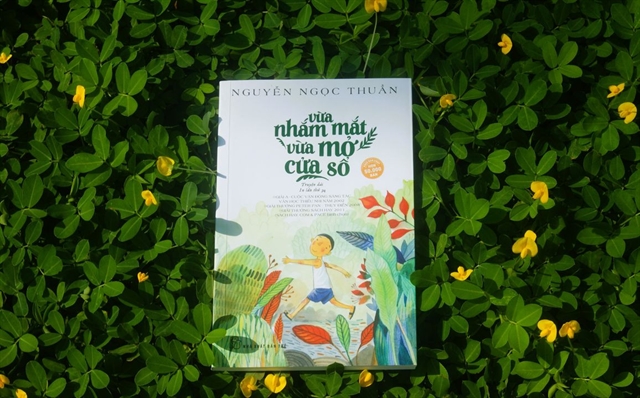 |
| 'Open the Window, Eyes Closed' can be considered the work that made the name of author Nguyễn Ngọc Thuần. Photo vntre.vn |
With his innate talent and refined writing style, author Nguyễn Ngọc Thuần has brought a new, emotional breeze to Vietnamese children's literature. Among them, Vừa nhắm mắt vừa mở cửa sổ (Open the Window, Eyes Closed) captivates readers, inviting them to experience warmth through all their senses and encouraging them to appreciate the beauty in life's small moments. Thuần shares insights into his celebrated story with Lâm Hạnh.
Inner Sanctum: Can you tell me a little bit about yourself?
I was born in 1972 in Bình Thuận Province and graduated from the HCM City University of Fine Arts. I was a former artist for prominent newspapers like Mực Tím and Tuổi Trẻ. I have authored seven literary works, earning numerous accolades.
Inner Sanctum: You wrote 'Open the Window, Eyes Closed' during your time at university. What inspired you to write about children back then?
Even during my university years, I felt a compelling urge to write for children. Despite not having a romantic partner at the time, I was a bit of a dreamer, longing to preserve the essence of village life for the younger generation.
As our world rapidly changes, I fear that authentic fields and gardens will soon vanish, replaced by urban landscapes. My goal was to go beyond what children see; I wanted them to explore life through their other senses. By closing their eyes and opening a window in their minds, they could discover so much more.
It's astonishing to see how this book continues to resonate with readers after 20 years. Schools in HCM City have embraced it as teaching material, with students adorning a room with their reviews and even drawing portraits of me. The book has received accolades, including the prestigious Peter Pan Award in Sweden, and has been translated into multiple languages, including Braille for visually impaired children.
After a decade, it was honoured with the Good Book Award. Many adults cherish it, having read it as children and now sharing it with their own kids. It frequently appears in polls for top children's books - what a literary adventure it's been.
Inner Sanctum: Following the success of that book, you continued to write for children. What motivated you during that period?
After that initial story, I thought I’d step back from writing for children, as I found adult fiction more appealing. However, when my friend Cao Xuân Sơn launched a bookshelf at the Kim Đồng Publishing House, I promised to contribute a book.
Initially, I misunderstood his request, thinking he focused on young adults. Yet, when he encouraged me to enter a writing contest for children, I felt compelled to write Nhện ảo (Virtual Spider) to fulfil my promise. Interestingly, both of those children’s stories ended up winning first prize.
This unexpected success reignited my passion for writing for younger audiences. I realised that children’s literature holds a special place in the literary world. It allows for creativity and imagination while imparting valuable lessons.
Writing for children challenged me to simplify my language without losing the depth of my messages. Each story became a way to connect with the innocence and curiosity of youth.
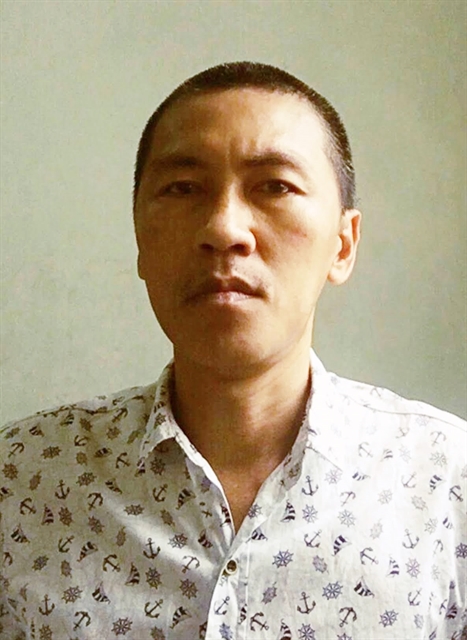 |
| Author Nguyễn Ngọc Thuần. Photo thethaovanhoa.vn |
Inner Sanctum: 'Open the Window, Eyes Closed' is written in pure, beautiful Vietnamese. Did you hesitate in your choice of language for a younger audience?
Over the years, I’ve learned that simplicity and clarity are the heart of literature. Writing for children demands even greater conciseness - like a carefully wrapped gift. Each sentence must be short yet evocative.
For me, writing for children is often more challenging than for adults. Open the Window, Eyes Closed is a heartfelt gift for young readers, a tribute to the children of my past and future. My father’s memory is woven throughout its pages, lending depth to the narrative.
When crafting the language, I aimed to create a voice that resonates with young readers. I wanted them to feel that the story was not just a tale but a conversation - a bridge connecting their world to the rich tapestry of emotions and experiences. This connection is what makes literature a powerful tool for growth and understanding.
Inner Sanctum: A secondary school student described the boy in your story as someone proud of his family, particularly his father. Do you think your work instils a sense of family love in readers?
The father in the story embodies my own dad - a figure of wisdom and simplicity. If readers resonate with this character, it’s likely because they share similar feelings about their fathers, even if they struggle to express them. I merely give voice to those unspoken sentiments. The relationship between the boy and his father reflects the universal bond that many children have with their parents, filled with pride, love and sometimes longing.
Through this story, I hope to evoke feelings of nostalgia and appreciation in readers, encouraging them to cherish their own family connections. Family love is a powerful theme, and I believe that literature can serve as a mirror, reflecting the emotions that might otherwise remain hidden.
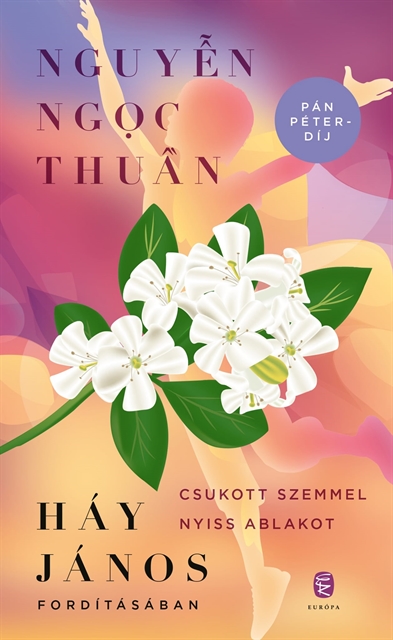 |
| The book has been translated into many languages. Photo thethaovanhoa.vn |
Inner Sanctum: Does the boy in the story reflect your own childhood experiences?
He represents my father, who guided me with a pen, as well as what every child needs: music, nature, empathy, friendship, sacrifice and self-respect.
The experiences I describe are drawn from my own life, coloured by my memories and emotions. They capture the essence of childhood - the innocence, the dreams and the simple joys that shape who we become.
Inner Sanctum: The father-son theme recurs throughout your works. Did you experience a beautiful bond with your father?
My father passed away when I was young, so my memories of him are ever-present in my writing. They reflect a longing for what once was, and the relationship I depict is both a tribute and a way to cope with my loss. Each story featuring a father-son dynamic serves as a reminder of the lessons I learned from him, and the love that transcends time.
Writing about father-son relationships allows me to explore the complexities of love, sacrifice and regret. It’s a way to honour my father’s memory and share the emotional weight of those experiences with my readers. I believe that literature has the power to heal, and through these narratives, I find solace in the shared human experience.
Inner Sanctum: How significant do you think a father’s role is in a child’s development?
While many successful individuals thrive without a father figure, the presence of a caring father is invaluable. A nurturing father is like a sturdy tree offering shade - providing stability and calmness for a child. The lessons learned from a father can shape a child’s character and influence their path in life.
Inner Sanctum: In 'Open the Window, Eyes Closed', you suggest that introspection can deepen our appreciation for life. Do you feel you matured early?
I’ve always felt a bit like an old soul. As a child, I loved climbing trees and daydreaming, often reflecting on life’s mysteries. Now, as I age, I find myself writing more whimsically - perhaps laughter is my way of coping with life’s pressures.
This blend of introspection and humour helps me navigate the complexities of adulthood while staying connected to the child within me. VNS

